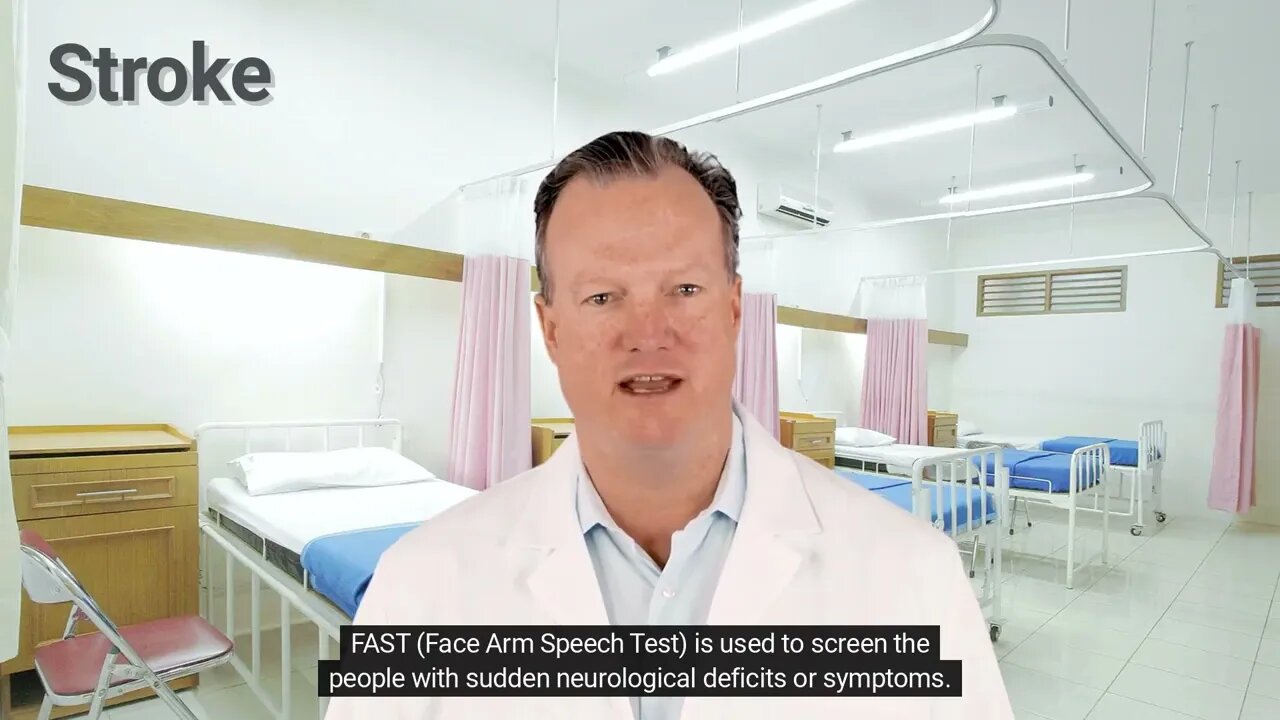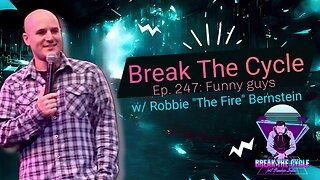Premium Only Content

What you should know about stroke to PREVENT IT happening TO YOU | stroke prevention
Write us (info@superlongevity.net) to know how to commission the preparation of one or more of the new personalized protocols offered by our professionals:
1) the super longevity protocol;
2) the super immunity protocol;
3) the super energy and mitochondria protocol;
4) the hair loss protocol:
5) rejuvenation T protocol (telomeres age);
6) rejuvenation M protocol (DNA methylation age);
7) sport performance, stamina and endurance protocol;
8) sport performance, testosterone, muscles and strength protocol.
For any other queries, feel free to write to info@superlongevity.net and we'll put you in touch with professionals who work with our network.
***
Stroke
***
Tell us about your personal experience in the comment section.
We are always thrilled to hear your feedback and experience.
***
If you want us to give you the contact information of professionals who work with our network, feel free to write to info@superlongevity.net and we'll put you in touch with the right professional for your needs.
In order to better find the right professionals for you, please indicate in your email if your queries regarding: 1) overall health; 2) food and supplement; 3) longevity. 4) others (in this case a brief description of your needs is recommended). We will get back to you as soon as possible with the contact information of a specific provider.
***
Disruption of the normal blood supply to any region of the brain causes a fatal condition called stroke. Stroke is a deadly, fatal and life threatening medical emergency. Stroke are of two types; ischemic stroke and haemorrhagic stroke. Ischemic stroke occurs because of transient stop of blood flow to any part of the brain. Whereas in haemorrhagic stroke, blood vessels in the brain are ruptured usually because of the high blood pressure. Stroke is one of the most common causes of deaths worldwide. Stroke leads to hypoxia of the brain tissues. So less blood to a part of the brain means less oxygen and the brain tissues suffer ischemic and atrophy.
If blood supply disruption to the brain continues for much longer duration permanent brain takes places and it is irreversible. Hypertension, obesity, smoking, atherosclerosis and hyperlipidaemia have been potent causes of stroke.
It can be treated medically by thrombolysis or surgically by thrombectomy. Confusion, vision changes, dizziness, abnormal sense of taste, tingling sensation, numbness, balance issues with altered consciousness and severe headache are few of the key symptoms of stroke. Unhealthy diets and sedentary lifestyle leads to strokes and transient ischemic attacks. One of the most common reasons is the blood clot in the blood vessels. It goes up in brain vessels and blocks the blood supply to the brain. Hence causing a stroke or mini/stroke known as transient ischemic attack. Higher levels of cholesterol in the blood always causes narrowing of blood vessels, leading to reduced supply to vital organs. It also promotes blood clotting. Some lipids such as LDL, VLDL and triglycerides are considered as bad lipids responsible for causing strokes. Diabetes, carotid artery disease, hypertension, and atherosclerosis are potential causes for a stroke to occur. Hyperlipidaemia, atrial fibrillation, smoking, high cholesterol, obesity, sedentary lifestyle, diabetes, old age, and uncontrolled hypertension are the aggravating factors for stroke related events in patients. In order to differentiate stroke hypoglycaemia is usually ruled out in suspected diabetic patients. FAST (Face Arm Speech Test) is used to screen the people with sudden neurological deficits or symptoms. Every single patient who is received at emergency is screened and examined for stroke related signs and symptoms. CT scan brain is a specific test to diagnose stroke. MRI tests are performed at later stages.
If stroke is due to interrupted blood supply to the brain then aspirin is recommended. In haemorrhagic stroke aspirin is contraindicated. Physiotherapy, speech therapy and occupational therapy are required in long term management of the stroke. Ischemic stroke definitely has a good prognosis if there is good nursing care of the patient. Rehabilitation in the form of physiotherapy and occupational therapy is the best care for such patients. In order to stop its recurrence, blood pressure should be tightly monitored and controlled. All the potential aggravating factors should be identified in such patients and should be rooted out. Such patients need to be put on medicines that prevent such brain events in future.
Lastly, remember that it is important to talk to your doctor or other professional before beginning any sort of supplementation or treatments. Feel free to contact us if you want us to give you the contact information of professionals who work with our network.
***
Topic related to: LONGEVITY, HEALTH, IMMUNITY, INFLAMMATION, ANTIAGING, LIFESPAN, Mitochondria, HEALING, SUPPLEMENTS, HEALTHY LIFE, IMMUNE SYSTEM.
Contact: info@superlongevity.net
-
 0:15
0:15
Super Health and Longevity
1 year ago $0.01 earnedUncovering the Secret to Immortality A Subway CoFounders Quest
961 -
 3:10:03
3:10:03
Barry Cunningham
15 hours agoTRUMP WEEKEND BRIEFING! MORE WINNING...MORE LEFTIES LOSING IT!
57.9K37 -
 2:20:09
2:20:09
Tundra Tactical
14 hours ago $2.86 earnedIs Trumps Executive Order A Second Amendment Wishlist???: The Worlds Okayest Gun Live Stream
38.9K2 -
 2:33:51
2:33:51
John Crump Live
19 hours ago $25.52 earnedSaturday Night Main Event!
124K13 -
 13:57
13:57
TimcastIRL
1 day agoTrump NUKES IRS After DOGE Investigation, OVER 9000 Employees To Be FIRED
134K179 -
 13:35
13:35
Russell Brand
18 hours agoPFIZER JUST MADE THEIR NEXT MOVE AND EXPERTS ARE TERRIFIED
157K320 -
 1:15:57
1:15:57
Victor Davis Hanson Show
1 day agoOver Here, Over There: the Russo-Japanese War and Trumpian Peace Policy
75.9K35 -
 23:55
23:55
MYLUNCHBREAK CHANNEL PAGE
1 day agoThe Nephilim Are Here
100K99 -
 1:00:58
1:00:58
Break The Cycle w/ Joshua Smith
15 hours ago $2.01 earnedBreak The Cycle Ep. 247: Funny Guys w/ Robbie "The Fire" Bernstein
33.1K1 -
 41:26
41:26
TheTapeLibrary
1 day ago $10.42 earnedThe Disturbing Horrors of the Trans-Allegheny Lunatic Asylum
64.2K12